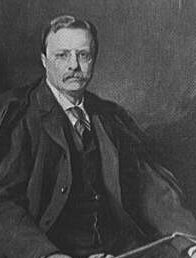
Theodore Roosevelt’s unsuccessful attempt to join the First World War was one of the most embarrassing moments of his political career. In the years leading up to the war, Roosevelt had been a vocal critic of President Woodrow Wilson’s foreign policy. When the war broke out, Roosevelt saw it as an opportunity to prove his worth as a leader. He believed that he could lead the American people to victory and make himself a hero in the process.
The United States’ Foreign Policy Prior to World War I
The United States’ foreign policy prior to World War I had been largely influenced by President Wilson’s ideals and beliefs. Wilson was a strong advocate of non-interventionism and sought to avoid entanglements with foreign countries. He opposed the war in Europe, believing that the United States should remain neutral, and focused on nation-building at home. Wilson’s policy of neutrality, however, was challenged when the German Empire began to threaten American shipping in the Atlantic.
In response to this threat, Wilson began to prepare the United States for war, in the hopes that it could remain neutral, while also preparing to defend itself if necessary. Roosevelt was a vocal critic of President Wilson’s foreign policy. He believed that the United States should be more engaged in foreign affairs and be more active in protecting its interests and those of its allies. Roosevelt disagreed with Wilson’s stance on neutrality and argued that the United States should join the Allied Powers in the war effort. This disagreement caused tension between the two politicians as the war dragged on and the United States stayed out of the conflict.
Roosevelt’s Attempt to Join the War
Ultimately, Roosevelt’s attempt to join the war effort failed for a variety of reasons. Primarily, it was his age (58) that was the main factor, but politics also played a role. Furthermore, Roosevelt’s idea of volunteering as an adviser was vetoed by high-ranking officers in the army. They found his plan impractical and believed that his presence in the war would only create issues. Finally, the American public had mixed feelings about Roosevelt’s plan. Many saw it as an attempt to gain glory, while others saw it as a sincere effort to help the country.
The Aftermath of Roosevelt’s Plan
The aftermath of Roosevelt’s plan was not kind to him. After he failed to join the war, Roosevelt was seen as a political enemy of President Wilson and his legacy was tarnished. Roosevelt had believed that his attempt to volunteer would make him a hero, but instead, it made him a political pariah. He was seen by many as an opportunist and was never able to win back the public’s trust.
What we Learned from Roosevelt’s Attempt
Theodore Roosevelt’s failed attempt to join the First World War taught a few important lessons. Primarily, it highlighted the importance of listening to the public’s opinion when making decisions. People are not always willing to accept changes or new ideas, especially in times of turmoil. Furthermore, it is important to take a realistic approach when making decisions. Roosevelt’s plan was impractical and doomed to fail. Lastly, it taught the importance of communication between politicians. Roosevelt’s attempts to join the army were due partially to a lack of communication between him and Wilson.
Theodore Roosevelt’s failed attempt to join the First World War was one of the biggest political blunders of his career. Though his motives were pure, he was never able to live it down and it served as a reminder of his poor judgment. By learning from his mistakes, we can ensure that similar mistakes never occur again.
Leave a Reply